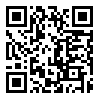Sat, Feb 21, 2026
[Archive]
Volume 7, Issue 2 (8-2025)
Int. J. Ethics Soc 2025, 7(2): 35-47 |
Back to browse issues page
Download citation:
BibTeX | RIS | EndNote | Medlars | ProCite | Reference Manager | RefWorks
Send citation to:



BibTeX | RIS | EndNote | Medlars | ProCite | Reference Manager | RefWorks
Send citation to:
Muhammadi Pouya F, Khakbaz A S, Rezaei Keramat A. Phenomenology of the Ethical Dimensions of Electronic Educational Evaluation. Int. J. Ethics Soc 2025; 7 (2) :35-47
URL: http://ijethics.com/article-1-317-en.html
URL: http://ijethics.com/article-1-317-en.html
1- Department of Educational Sciences, Faculty of Humanities, Bu-Ali Sina University, Hamedan, Iran , muhammadipouya@basu.as.ir
2- M.A Student, History and Philosophy of Education, Bu-Ali Sina University, Hamedan, Iran
3- Department of Educational Sciences, Faculty of Humanities, Bu-Ali Sina University, Hamedan, Iran
2- M.A Student, History and Philosophy of Education, Bu-Ali Sina University, Hamedan, Iran
3- Department of Educational Sciences, Faculty of Humanities, Bu-Ali Sina University, Hamedan, Iran
Abstract: (842 Views)
Introduction: With the paradigm shift in education, assessment methods will inevitably change as well. To conduct ethically grounded assessments, addressing ethical considerations is essential. Recognizing the importance of this issue, the present study was conducted with the aim of exploring the lived experiences of ethics in electronic educational evaluation.
Material and Methods: This study employed a qualitative approach of the phenomenological type. The research population included all faculty members of the Department of Educational Sciences at Bu-Ali Sina University who had teaching experience, as well as all master’s students of Educational Sciences (2019 and 2020) who had experience with virtual learning. Purposeful sampling was used, with the criterion of having completed two semesters virtually and being accessible. The data collection tool was in-depth semi-structured interviews. All accessible faculty members of the department were interviewed, and student interviews continued until theoretical saturation was achieved, which occurred after 10 interviews. The data collected were coded and categorized using MAXQDA software.
Results: Analysis of the findings resulted in 28 sub-categories and 6 main categories.
Conclusion: To conduct ethically grounded assessments, instructors need to understand the essence of electronic education in order to develop a better perspective on electronic assessment. Instructors with pedagogical competence utilize a variety of tools for electronic assessment. According to faculty perspectives, a constructivist approach to electronic assessment emphasizes attention to the process. From the students’ perspective, a learner-centered approach in assessment serves as a means for self-awareness, skill development, and critical thinking enhancement. From both faculty and student perspectives, a process-oriented approach and designing questions at higher cognitive levels reduce the challenges of assessment
Material and Methods: This study employed a qualitative approach of the phenomenological type. The research population included all faculty members of the Department of Educational Sciences at Bu-Ali Sina University who had teaching experience, as well as all master’s students of Educational Sciences (2019 and 2020) who had experience with virtual learning. Purposeful sampling was used, with the criterion of having completed two semesters virtually and being accessible. The data collection tool was in-depth semi-structured interviews. All accessible faculty members of the department were interviewed, and student interviews continued until theoretical saturation was achieved, which occurred after 10 interviews. The data collected were coded and categorized using MAXQDA software.
Results: Analysis of the findings resulted in 28 sub-categories and 6 main categories.
Conclusion: To conduct ethically grounded assessments, instructors need to understand the essence of electronic education in order to develop a better perspective on electronic assessment. Instructors with pedagogical competence utilize a variety of tools for electronic assessment. According to faculty perspectives, a constructivist approach to electronic assessment emphasizes attention to the process. From the students’ perspective, a learner-centered approach in assessment serves as a means for self-awareness, skill development, and critical thinking enhancement. From both faculty and student perspectives, a process-oriented approach and designing questions at higher cognitive levels reduce the challenges of assessment
Type of Study: Original Article |
Subject:
Special
Received: 2025/01/29 | Accepted: 2025/03/11 | Published: 2025/08/13
Received: 2025/01/29 | Accepted: 2025/03/11 | Published: 2025/08/13
Send email to the article author
| Rights and permissions | |
 |
This work is licensed under a Creative Commons Attribution 4.0 International License. |






